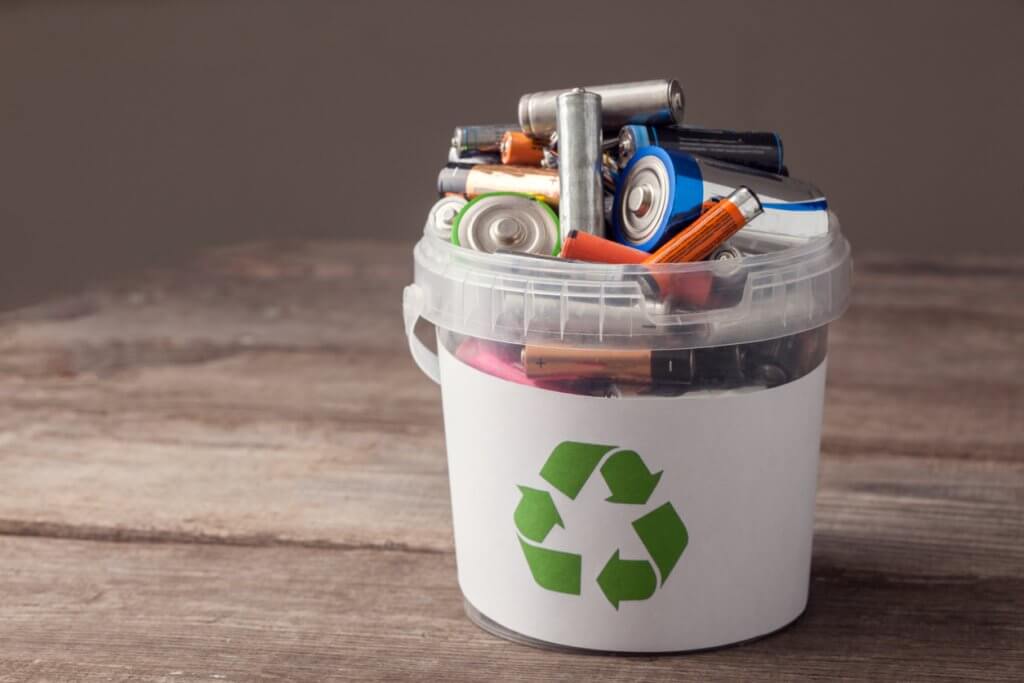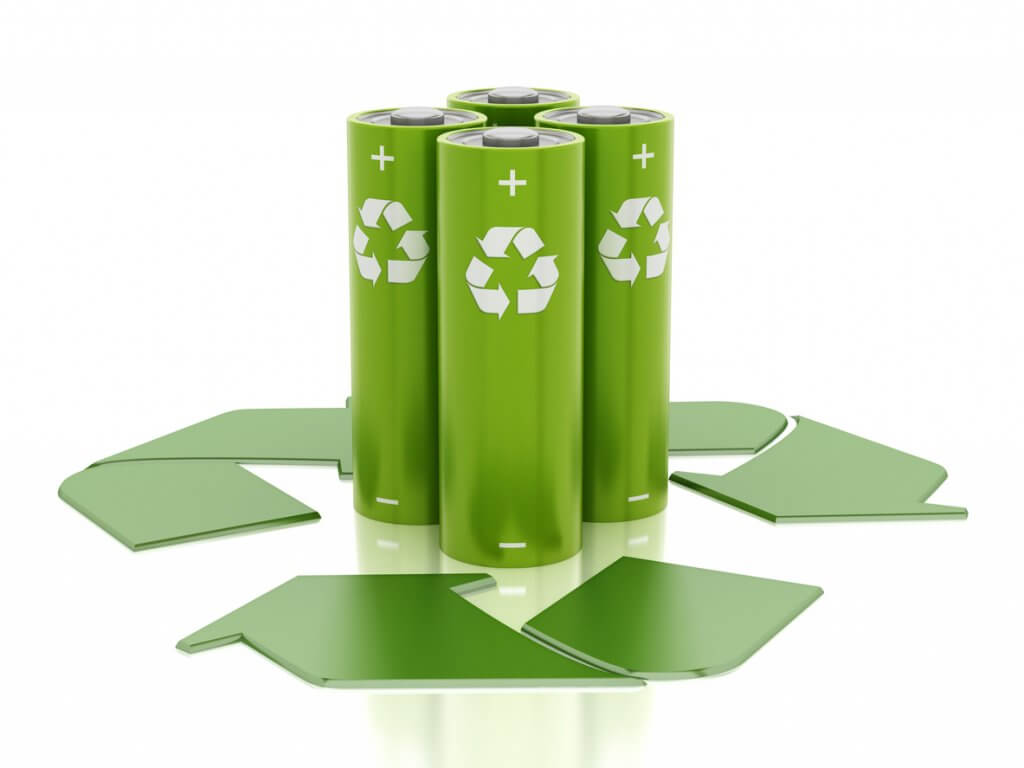Posted on 20th May 2022 by Hintons
Throwing batteries into your household waste bin can cause serious harm to the environment. It’s important to know how to dispose of batteries correctly to keep the planet healthy and prevent any issues during the disposal process.
There are many different types of batteries, but they all contain toxic ingredients that make them unsuitable for regular disposal. In this article, we take a look at the different types of batteries and explain the safest way to dispose of them.
Can I put batteries in the bin?
You must not dispose of batteries in your general waste bin. This is because batteries contain harmful metals, such as lead, mercury, copper and zinc. When batteries are thrown away and sent to landfill, these harmful metals leak into the ground and pollute the surrounding environment. They are often able to permeate the soil and find their way into water supplies, which in turn can cause harm to human health when consumed.
Understanding the different types of batteries
Batteries come in all shapes and sizes. It’s important you can identify the different types of batteries so that you know the best way to dispose of them.
Button batteries
These are very small batteries often used in watches, key fobs and other intricate devices. It is common for people to throw these devices away with their household waste, forgetting that there is in fact a battery inside them. However, as with any batteries, button batteries contain harmful toxins and must be disposed of at a hazardous waste collection site or recycling facility.
Car batteries
It’s unlikely you’ll need to dispose of a car battery, but it may need to be replaced. If you are getting rid of your old car battery, it should be taken to a hazardous waste collection site.
Alkaline batteries
These are the most common types of batteries you’ll find and can be used to power all sorts of small devices, including remote controls, torches and toys. Alkaline batteries should be recycled at a relevant battery bin, commonly found in supermarkets. Some councils may even collect them as part of their service.
Rechargeable batteries
These batteries may look similar to alkaline batteries, but they contain nickel and cadmium, which can be particularly harmful if leaked into the environment. These batteries should therefore be disposed of at a hazardous waste collection site or suitable recycling facility.
Lithium-ion batteries
These are the batteries typically used in electronic devices such as mobile phones or laptops. Lithium-ion batteries should be disposed of at a specialist recycling centre or a hazardous waste collection site.
Using reusable batteries as a solution
A great way to reduce your battery waste is to use reusable batteries where you can. These batteries can be recharged over and over via mains electricity. This means you’ll get the power of multiple batteries without having to constantly throw them away and buy more.
Remember, rechargeable batteries have additional metals in them that are harmful to the environment, so these must be disposed of at a hazardous waste collection site or suitable recycling facility at the end of their lifespan.
Hinton’s offers Waste Electrical and Electronic Equipment (WEEE) recycling at its dedicated recycling facility. Our expert team can help you dispose of your batteries or other electronic waste in a way that is safe and convenient. Our services include collection, sorting and recycling over 90% of your electrical hardware at our licensed recycling depot.
Contact us today for safe disposal of your electronic waste.


